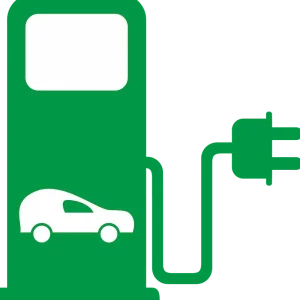The planned ban on new diesel and petrol vans and cars by the UK Government has been pushed back from 2030 to 2035.
The move was announced by Prime Minister Rishi Sunak, who said that more time was needed to prepare for the transition to EVs, citing concerns about the upfront cost impact on families and practicalities for small businesses.
Reacting to the announcement, Logistics UK chief executive David Wells said: “Pushing back the deadlines to decarbonise, rather than making progress on the investment and policies logistics businesses need to implement the route to Net Zero, is unhelpful and will discourage private investment in the UK and its industries.
“There is still much to be done, from delivering a charging network to confirming plans for alternatively fuelled vehicles, but our industry remains committed to achieving Net Zero.
“As a sector, logistics works hard to deliver on time for all sectors of the economy – if new decarbonisation deadlines are to be achieved, it is vital for the health of the UK’s supply chain, and therefore our economy, that the government does the same. At a time when industry needs detail and action, delay just creates more uncertainty.”
Giving his reaction, Association of Fleet Professionals (AFP) chair Paul Hollick said: “While some of our members will be pleased about this because it takes the pressure to electrify away for the time being, the reaction that we are seeing across the fleet sector to this news is largely negative.
“The motor industry and their fleet customers have invested billions towards meeting the 2030 electrification deadline and while there are serious operational issues that need to be tackled, especially when it comes to electric vans, the assumption within our membership was that the government would need to provide more support, not move the goalposts.
“The overwhelming feeling is probably one of irritation. Fleets have done some incredible work when it comes to electrification and it feels as though the can has been kicked down the road in a fairly arbitrary fashion by a government that sees this move as politically expedient.”
Giving his reaction to the announcement, BVRLA chief executive Gerry Keaney said the response from the rental and leasing industry body’s members would be mixed – but warned that confidence in future government strategies could be undermined.
He said: “Today’s announcement will frustrate many while offering relief to others. Those that have made huge financial and strategic investments in this technology and mobilised their customers and workforces for decarbonisation will be worried that Government is applying the brakes.
“Others will be grateful for the extra breathing space this delay provides. They will be hoping that it gives more time for costs to come down and consumer attitudes to change.
“We await the further details that will show the true impact of today’s announcement. It is important that progress isn’t paused and momentum can be maintained. Either way, everyone is likely to have less trust in the government’s Net Zero strategy and will think a lot harder before committing to any of its future strategies or roadmaps.”
Giving his reaction, Society of Motor Manufacturers and Traders chief executive Mike Hawes said he was reassured that the ZEV mandate – which will set targets for increasing numbers of EVs to be sold by each manufacturer from next year – would still go ahead, but warned that pro-EV incentives must also be offered.
He said: “The automotive industry’s commitment to a zero-emission new car and van market remains unchanged. Net Zero cannot be achieved without this sector’s decarbonisation.
“The Prime Minister has confirmed that a mandate to compel the sale of EVs – the single biggest mechanism to deliver Net Zero – will be published shortly, starting in January 2024.
“Manufacturers will continue to put innovative new models on the market but consumers need encouragement to buy more than ever. Today’s announcement must be backed up with a package of attractive incentives and measures to accelerate charging infrastructure to give consumers the confidence to switch. Carrots move markets faster than sticks.”





